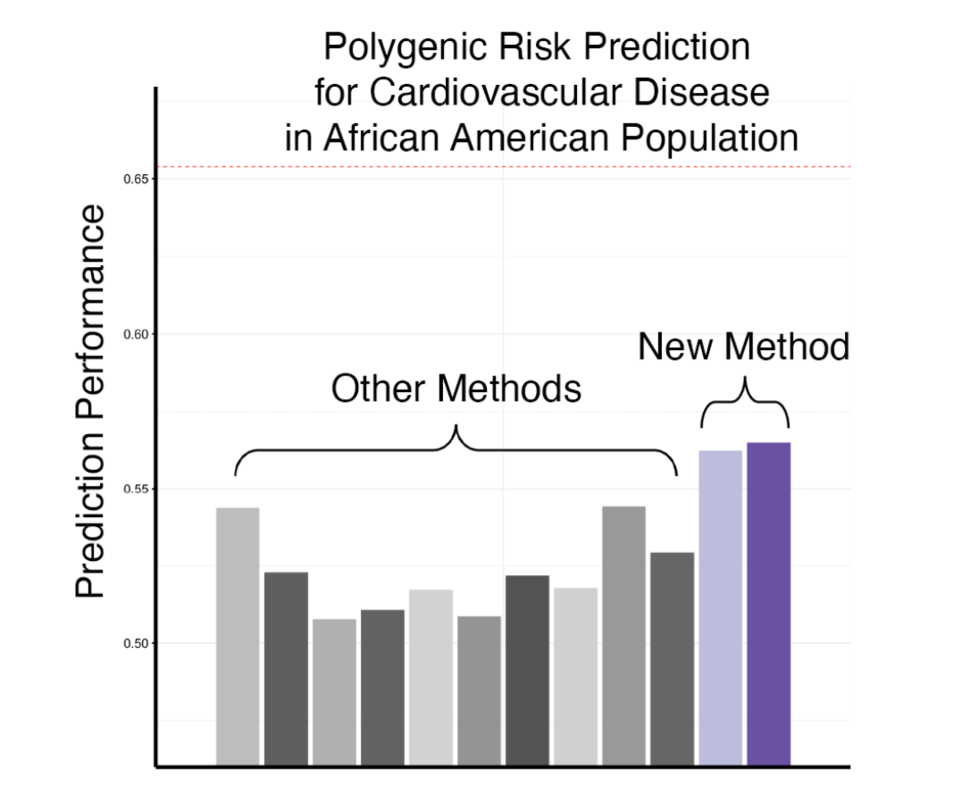Novel Method Improves Polygenic Risk Prediction for Diverse Ancestries
, by Jennifer Loukissas, M.P.P.
Data From Over Five Million Individuals Provide Test Environment for New Approach
A multidisciplinary and international team of scientists from academia, industry, and government, has developed a new statistical method for generating polygenic risk scores (PRS) for heritable traits and diseases that improves performance across diverse populations. Their methods are described in a paper published September 25, 2023, in the journal Nature Genetics.
The team, led by Haoyu Zhang, Ph.D., Earl Stadtman investigator in the Biostatistics Branch, included collaborators from Harvard T.H. Chan School of Public Health, Johns Hopkins Bloomberg School of Public Health, 23andMe, Inc., and the National Cancer Institute.
Together, they showed that while no single approach was perfect for every situation, their method was better at predicting risk for individuals with African ancestry. Nevertheless, they concluded that better methods alone cannot eliminate the performance gap; larger studies, including participants from groups typically under-represented in research studies, are essential.
Polygenic Risk Scores (PRS) use germline DNA—single nucleotide polymorphisms (SNPs) identified through genome-wide association studies (GWAS) to be associated with a heritable trait—to predict an individual's risk of a given trait or disease. Most of the GWAS data have been gathered from studies of populations with participants of predominantly European ancestry. This imbalance not only restricts the usefulness of PRS for diverse groups but also underscores broader health inequities.
Dr. Zhang and colleagues sought to improve predictions for non-European groups, especially for those with African ancestry where genetic risk prediction has been historically challenging, and to create a method that uses genetic data from many different groups to ensure PRSs are both accurate and representative across various populations.
In the process of developing this method, they identified that populations with African ancestry have a richer genetic diversity with a larger number of genetic variants contributing to heritability of specific traits, compared to other groups. Their method addressed this complexity by effectively handling the vast array of genetic data with computational speed and the design, offering a promising direction for more inclusive genetic research in the future.
They tested their method using both simulated scenarios and real-world genetic data from more than 5 million individuals from 23andMe Inc., the Global Lipids Genetics Consortium, All of Us Research Program, and the UK Biobank, and compared their method against the performance of nine other methods.
Reference
Zhang H et al. A new method for multiancestry polygenic prediction improves performance across diverse populations. Nat Genet. 2023.
